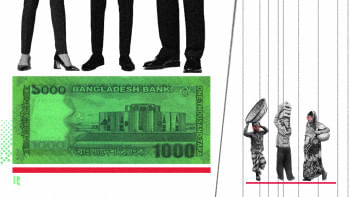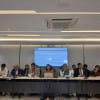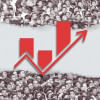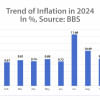The ravages of wealth

The side and back streets of Dhaka's Tejgaon industrial area are a beautiful microcosm of the city, perhaps even the country at large. There are aged banyan trees with rows of rickshaws parked underneath, and almost permanent dwellings made of wood and corrugated metal sheets on the sidewalk, which become flooded after heavy rainfall. Some streets have little shops and a bazaar, others house shiny new buildings featuring contemporary architecture, and showrooms display luxury imported cars. Wandering down some of the streets, it is commonplace to see a car worth crores parked next to rickshaws which support the livelihoods of millions of people.
The income gap between those chauffeured around in hand-stitched leather seats and those ferrying people is astronomical. A high-end Mercedes-Benz costs between Tk 2 crore and Tk 3 crore and serves almost no purpose other than to showcase how much money the owners have been able to accumulate, either through their work or by incurring debt which they have no intention of repaying. The rickshaws, on the other hand, cost Tk 7,000-Tk 12,000 each, which takes almost a year to pay back and provides for the livelihood of a family, though the three-wheeled vehicle is sneered at.
Bangladesh's wealth inequality keeps getting wider, with data from 2022 further highlighting our slide towards greater income and household expenditure disparity between those with the highest levels of wealth and those living in poverty. This decades-long trend can be more readily understood by walking through the various neighbourhoods of the capital city. The traffic congestion on Gulshan Avenue gives us a glimpse of the grotesque wealth some have been able to accumulate, with multiple luxury 4x4s often waiting next to each other—each costing more than the earning potential of most university graduates.
Moving away from luxury status symbols, everyday costs of living have spiralled over the past two years, with Russia's war with Ukraine cited as the cause of double-digit inflation and falling foreign reserve (which has caused an over 30 percent increase in the exchange rate). Government officials, bankers, business associations, and traders have pinpointed the exchange rate rise as the reason behind inflation. Some, however, have used this as an opportunity to hike prices to artificially create scarcity or have resorted to price-fixing to boost their profit. The impact of this is that working class people are finding it increasingly difficult to eat balanced meals, with some skipping meals altogether.
Even though the government has repeatedly attempted to fix the price of basic food commodities, it does not seem to be working. Government officials state that the power of corporate entities in certain markets has grown to such an extent that they can now do whatever they want. The egg market is a prime example of this, as a number of businesses managed to collude to increase the price of eggs overnight with marginal increase to their cost, citing the dollar crisis. For many weeks in 2023, egg prices were out of the reach of many for whom this food was once the only affordable source of protein.
Curiously, at the end of last year, the price for beef fell for the first time in almost two years—something many claimed was a ploy to garner votes before the election and that the price would shoot up again. Interestingly, days after the election, beef prices started creeping up again. In one instance on January 20, a trader in Rajshahi was killed for selling beef at the mandated price. Unscrupulous business practices have long been a part of how people accumulate wealth. But the fact that small-scale traders felt it was worth taking the risk to kill a fellow trader is unnerving. If certain vested interest groups are willing to go as far as murdering someone to ensure their extraordinary profit, there is something horribly wrong with our society's collective list of priorities.
Given the astronomically high cost of living and stagnating wages, it is important to ask where and to whom the country's wealth is being transferred. We saw during the height of the Covid pandemic how the wealthiest individuals got richer. If we had transparent data on the richest individuals in Bangladesh, it would perhaps be reasonable to suspect that those at the top of our society have managed to amass considerable wealth during the last two years of economic turmoil. Based on the data we do have, the top 10 percent had increased their wealth by 40 percent by the end of 2022, which means the wealth disparity in Bangladesh is set to grow even wider.
Profiteering in the agribusiness sector is not limited to manipulating the prices of eggs and beef, or something unique to agribusinesses. Special interest groups, usually called syndicates, have become an even greater mainstay in Bangladesh's economic landscape. Ranging from money launderers to bank loan defaulters and train ticket resellers, our economy has become one where the only goal of society is to get rich.
Successive policy interventions have failed to stop the league of bandits, making it harder for people to enjoy even a decent standard of living. As this government starts its new term, let us hope they will put the "awami" back in Awami League. A good place to start would be to take the current policy of deterring the import of luxury goods and extending it to banning the import of luxury high-end vehicles, electronics, and other non-consumption goods. It has taken decades for the country to overcome some of the highest levels of extreme poverty globally. For it to now fall into the trap of becoming one of the most unequal economies in the world would be a devastating downslide that we frankly cannot afford.
Imran Jamal has a PhD in Anthropology from SOAS. His research interests include social justice, elites and localised manifestations of rent seeking, and neo-liberal oppression.
Views expressed in this article are the author's own.
Follow The Daily Star Opinion on Facebook for the latest opinions, commentaries and analyses by experts and professionals. To contribute your article or letter to The Daily Star Opinion, see our guidelines for submission.

 For all latest news, follow The Daily Star's Google News channel.
For all latest news, follow The Daily Star's Google News channel. 












Comments